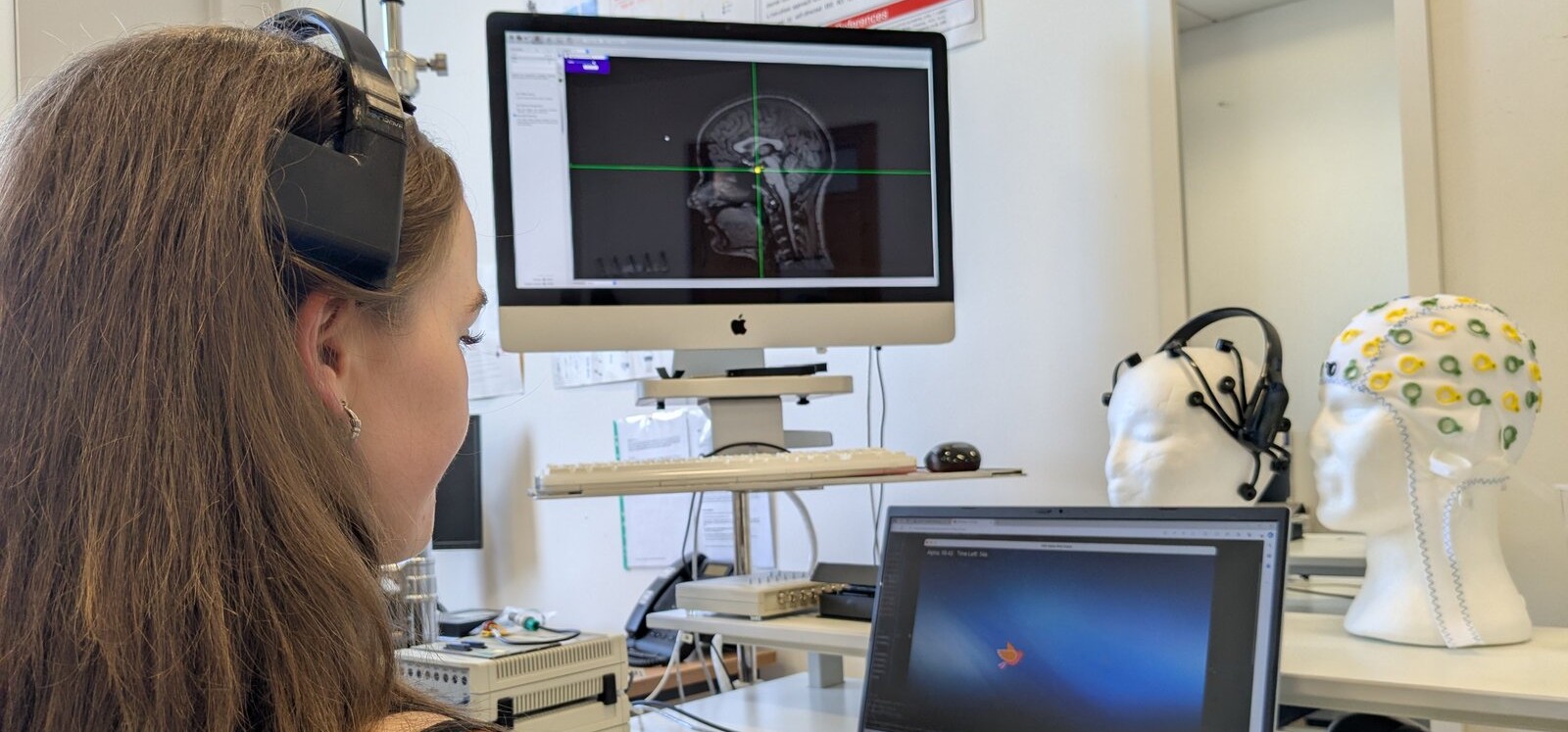Stroke Rehabilitation Research Using Brain-Computer Interfaces (BCIs)
We are inviting stroke survivors, carers, and healthcare professionals to a special event at Riddel Hall on 7th August to learn about an exciting new rehabilitation research project - and how they can be part of it.

The project is testing whether a portable, wireless brain-computer interface (BCI) can help people regain movement in their arms after a stroke. Stroke is one of the leading causes of adult disability in Northern Ireland, with around 3,000 people admitted to hospital with stroke each year. Of those who survive, up to 80% experience arm or hand weakness—making daily tasks like getting dressed, cooking, or writing extremely difficult.
Hand and arm weakness happens when the part of the brain that controls movement is damaged by stroke. But our brains are adaptable - thanks to a process called neuroplasticity, where other parts of the brain can take over lost functions, especially when the right kind of rehabilitation is used.
That’s where this research comes in. The team is testing an approach where stroke survivors use a simple BCI headset that reads brain activity while they imagine moving their affected arm. The brain signals are picked up and used to control a computer game. This form of "motor imagery" activates the same brain areas as real movement and may help keep these regions healthy and active—even when actual movement isn't yet possible.
By encouraging the brain to stay engaged, this technique may support recovery and help people regain more control over their limbs with regular use.
How to get involved
The team is now looking to:
Speak with stroke survivors, carers, and professionals at the event on 7th August to share the science, listen to feedback, and answer questions.
Recruit around 50 stroke survivors to help test the BCI system in the next phase of research.
This event is a chance to help shape the future of stroke rehab in Northern Ireland.
Event Details:
7th August
Riddel Hall, Belfast
Time TBC
